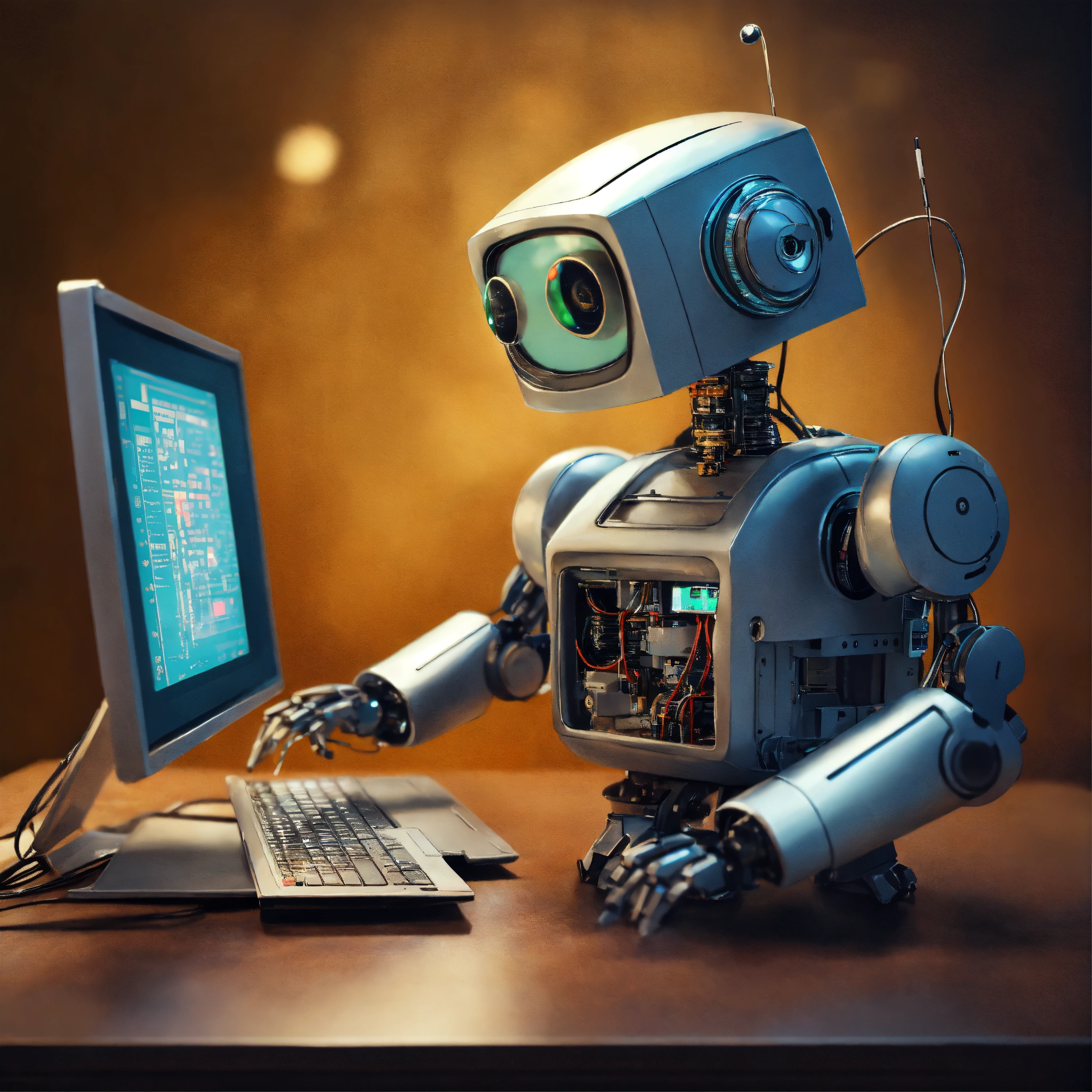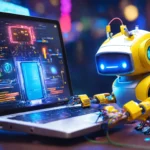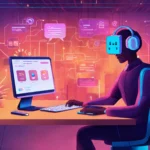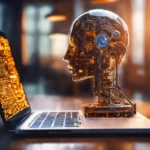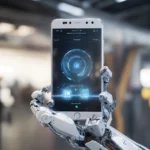AI-powered chatbots have become an essential tool for businesses, transforming how companies interact with customers, automate services, and enhance efficiency. With advancements in Natural Language Processing (NLP), machine learning, and AI-driven analytics, chatbots in 2025 are more human-like, capable, and intelligent than ever before.
In this article, we’ll explore how AI chatbots are revolutionizing businesses across industries and what the future holds for AI-driven customer interactions.
1. AI Chatbots Are Becoming More Human-Like
One of the biggest developments in 2025 is the rise of human-like AI chatbots powered by GPT-4, GPT-5, and other advanced AI models. These chatbots:
✅ Understand complex questions with better context recognition.
✅ Mimic human tone and emotions, making interactions more natural.
✅ Engage in real-time conversations, reducing response delays.
With AI improvements, businesses can now offer seamless and natural chatbot experiences, making customer service more efficient and satisfying.
2. AI Chatbots Are Replacing Traditional Customer Support
AI chatbots are now handling 80% of customer interactions, significantly reducing the need for human agents. Businesses benefit from:
✅ 24/7 availability, providing instant support anytime.
✅ Automated responses to FAQs, freeing up human agents for complex queries.
✅ Faster response times, improving customer satisfaction.
Companies like Amazon, Google, and Shopify are integrating AI chatbots into customer support, e-commerce, and social media platforms to enhance user experiences.
3. AI Chatbots in E-Commerce: Personal Shopping Assistants
AI chatbots are transforming e-commerce by acting as personal shopping assistants. Features include:
✅ Product recommendations based on user preferences.
✅ Automated order tracking and updates.
✅ Instant checkout support, reducing cart abandonment.
Brands like Nike, H&M, and Sephora use AI chatbots to personalize shopping experiences, boosting sales and customer engagement.
4. AI Chatbots in Healthcare: Virtual Medical Assistants
In 2025, AI chatbots are playing a crucial role in healthcare, assisting with:
✅ Symptom checking and preliminary diagnosis.
✅ Medication reminders and health tracking.
✅ Appointment scheduling and follow-up notifications.
AI-driven medical chatbots, such as those used by Mayo Clinic and WebMD, help patients access healthcare services more quickly and conveniently.
5. AI Chatbots in Banking: Secure and Smart Financial Assistance
Banks and financial institutions are integrating AI chatbots to improve customer service and security. Key features include:
✅ Fraud detection and security alerts.
✅ Instant account balance and transaction details.
✅ AI-powered financial planning and budgeting advice.
Leading banks like JP Morgan, Bank of America, and Wells Fargo use AI chatbots for seamless financial interactions.
6. AI Chatbots in Education: Personalized Learning Assistants
Education is evolving with AI-powered chatbots that act as virtual tutors. These chatbots:
✅ Provide real-time answers to student queries.
✅ Offer personalized study plans based on learning patterns.
✅ Assist in language learning and skill development.
Platforms like Duolingo, Coursera, and Khan Academy use AI chatbots to enhance digital learning experiences.
7. AI Chatbots in Travel and Hospitality
AI chatbots are redefining travel experiences, making trip planning easier with:
✅ Real-time flight and hotel booking assistance.
✅ Automated check-ins and travel updates.
✅ Personalized recommendations for destinations and activities.
Companies like Booking.com, Expedia, and Airbnb are leveraging AI to improve customer experiences and boost engagement.
8. AI Chatbots in Marketing: Smart Lead Generation & Customer Engagement
Marketers are using AI chatbots for customer engagement and lead generation. These chatbots:
✅ Analyze user behavior to create personalized marketing campaigns.
✅ Engage potential customers through social media and email automation.
✅ Provide instant responses to inquiries, increasing conversion rates.
Brands like Coca-Cola, McDonald’s, and Tesla use AI chatbots to enhance digital marketing strategies.
9. AI Chatbots in HR & Recruitment: Virtual Hiring Assistants
Hiring is becoming faster and more efficient with AI chatbots that:
✅ Screen resumes and shortlist candidates.
✅ Schedule interviews automatically.
✅ Answer job-related questions and assist applicants.
Companies like LinkedIn, Glassdoor, and Indeed use AI chatbots to simplify the hiring process.
10. The Future of AI Chatbots: What’s Next?
By 2030, AI chatbots are expected to become even more advanced, with features like:
✅ Emotional intelligence to detect human emotions and respond accordingly.
✅ Fully automated sales and customer support, requiring minimal human intervention.
✅ Integration with the Metaverse, allowing virtual AI avatars to interact with customers.
As AI technology continues to evolve, chatbots will become more essential in every industry, improving efficiency and customer experiences.
Conclusion: AI Chatbots Are Revolutionizing Business
AI chatbots are no longer just a customer service tool—they are driving business growth, improving efficiency, and enhancing customer experiences across multiple industries. As AI technology advances, businesses that adopt AI-powered chatbots will gain a competitive edge in the digital world.
